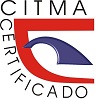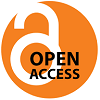Circle of interest for motivation to the mathematical subject in third grade students
Circle of interest for motivation to the mathematical subject in third grade students
Keywords:
Motivation toward study, learning mathematic, complementary activity, circle of interestAbstract
Teaching – learning process en Primary Education demands the need for learning to be more developing every day, therefore the teacher must focus on new strategies to enhance motivation toward the subjects taught, allowing a comprehensive development. This process is mediated by the existing relationships between the objectives and contents to be achieved by this age group, in addition to taking into account the teaching reality they have in order to appropriate the contents. The motivational deficiencies identified invite us to reflect on the educational work in Primary Education in the subject of Mathematic. In addition to the use of the circle of interest, as a means of acquiring the contents addressed in this subject, taking into account the variability and potentialities of the students so that greater motivation is achieved toward its study. The objective of this article is to propose some a circle of interest for motivation to learn mathematics in students in the first cycle of Primary School, encouraging students become more interested in these contents, increasing their cognitive and motivational abilities, obtaining a independence on his part, these changes would have an impact on his academic performance, making him work according to his type of learning, encouraging him and not forcing him, thus increasing his mathematical knowledge, hence the effective importance of the proposed circle of interest.
Downloads
References
Albertí, M. (2018). Las matemáticas de la vida cotidiana. La realidad como recurso de aprendizaje y las matemáticas como medio de comprensión. Editorial Los Libros de la Catarata, Madrid. https://uees.edu.ec/las-matematicas-en-la-vida-cotidiana/
Calle Chacón, L. P,.Garcia-Herrera, D. G, Constantino Ochoa-Encalada, S, Erazo-Álvarez, J. C (2020) La motivación en el aprendizaje de la matemática: Perspectiva de estudiantes de básica superior, Revista Arbitrada Interdisciplinaria KOINONIA, Vol. V, No 1, ISSN: 2542-3088, http://dx.doi.org/10.35381/r.k.v5i1.794
Choez Galarza, P. Y, Benavides Herrara, V. P (2021) Rol de la motivación en el proceso enseñanza-aprendizaje mediada por los E-learning y las TIC, Revista Anual Acción y Reflección Educativa, ISSN L 2664-3775 No. 050, https://dspace.ups.edu.ec/bitstream/123456789/22154/1/UPS-GT003668.pdf
Cobeña Napa, M. A, Moya Martinez, M. E (2019) El papel de la motivación en el proceso de enseñanza- aprendizaje, Revista Atlante: Cuadernos de Educación y Desarrollo, ISSN 1989-4155, https://www.eumed.net/rev/atlante/2019/08/motivacion-ensenanza-aprendizaje.html
ICCP (2018) Propuestas para la transformación de las instituciones educativas. Documentos para los participantes del evento https://www.mined.gob.cu/instituto-central-de-ciencias-pedagogicas-iccp
Naciones Unidas (2018). La agenda 2030 y los Objetivos de Desarrollo Sostenible: una oportunidad para América Latina y el Caribe, (LC/G.2681-P/Rev. 3), Santiago. ISBN 978-92-1-058643-6 (versón PDF). Recuperado de https://repositorio.cepal.org/bitstream/handle/11362/40155/24/S1801141_es.pdf
Ministerio de Educación Cuba (MINED). (2023, 5 de septiembre). Nuevas formas de trabajo en las instituciones y modalidades educativas. Resolución No. 121 de 2023. La Habana Cuba.
Rico Montero, P, Santos, E. M, Martín-Viaña. V, García. M, Castillo. S. (2008). El Modelo de escuela primaria: una propuesta desarrolladora de educación, enseñanza y aprendizaje. La Habana: Pueblo y Educación, ISBN 978-959-13-1776-6
Rodríguez, M. E (2010) La matemática: ciencia clave en el desarrollo integral de los estudiantes de educación inicial, Revista del Instituto de Estudios en Educación, Universidad del Norte, ISSN 1657-2416, No 13, https://www.redalyc.org/articulo.oa?id=85317326009
Romero Artavia, E., Mora Campos, A., González Víquez, W., Garbanzo Hernández, P.R., Zamora-Araya, J. A., Quirós, F., & García Vargas, S. (2020). Desarrollo de la motivación en estudiantes de secundaria mediante la implementación de un programa educativo en Artes Plásticas basado en el Aprendizaje Cooperativo. Cuadernos de Investigación Educativa, 11(2), p. 117-131. https://doi.org/10.18861/cied.2020.11.2.2990
Soledispa Rivera, A. M, San Andrés Soledispa, E. J, Soledispa Pin, R.A (2020) Motivación y su influencia en el desempeño académico de los estudiantes de educación básica superior, Revista Sinapsis, Vol. 3, No. 18 , ISSN 1390 – 977, https://www.itsup.edu.ec/sinapsis
Published
How to Cite
Issue
Section
License
Copyright (c) 2023 Gabriela Rodríguez Castañeda , Idelvis López Guillén, Iraida Cruz Barcelay

This work is licensed under a Creative Commons Attribution 4.0 International License.
Horizonte Pedagógico is an Open Access journal, meaning that all its content is freely accessible at no charge to the reader or their institution. Users are authorized to read, download, copy, distribute, print, search, or link to the full texts of articles in this journal without prior permission from the publisher or author, in accordance with the BOAI definition of open access. Authors who publish in this journal agree to the following terms: Authors retain copyright and grant the journal the right of first publication. The journal is protected under a Creative Commons Attribution 4.0 International License (CC BY-NC 4.0), which permits others to share (copy and redistribute the material in any medium or format) and adapt (remix, transform, and build upon the material) for any purpose, even commercially. Under the following conditions: attribution (you must give appropriate credit, provide a link to the license, and indicate if changes were made) and non-commercial — You may not use the material for commercial purposes. You may do so in any reasonable manner, but not in any way that suggests that the journal or the publishing author endorses you or your use.






















